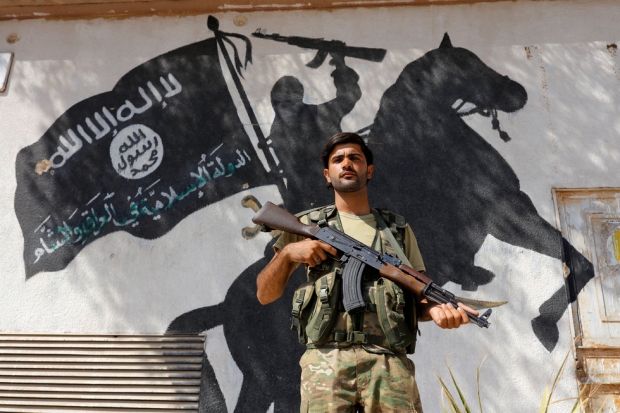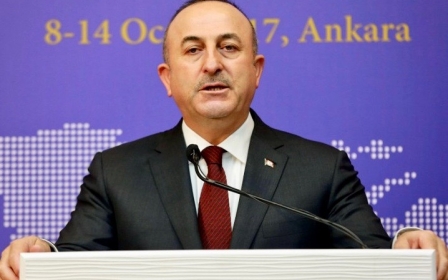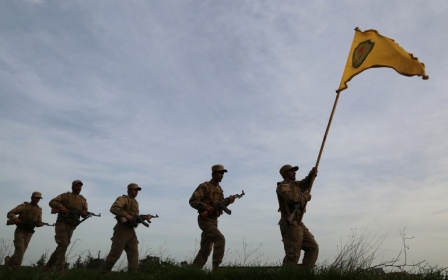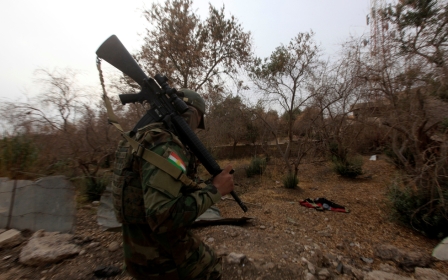Kurdish group heads to US in hope of support from Trump
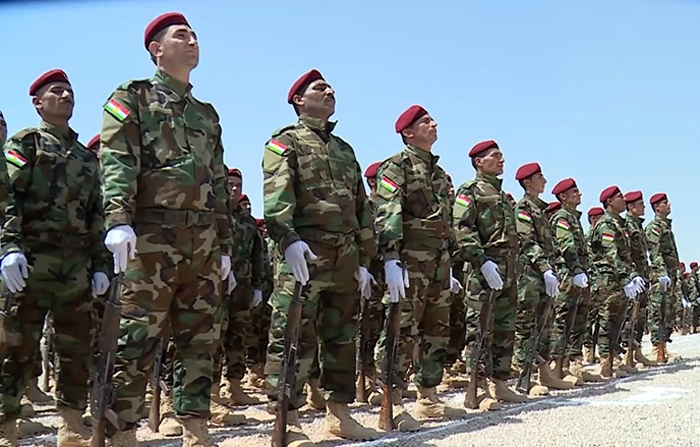
A Syrian Kurdish group is set to visit the US this month to meet officials from the Trump administration, in a move that could see them becoming a force defending the new president's so-called safe zones in Syria.
The Kurdish National Council took part in the Astana peace talks in January but later withdrew due to disagreements with the Syrian opposition’s National Coalition (SNC). The KNC wants the establishment of a federal state, which the coalition opposes.
The KNC was formed in October 2011, in Erbil, Iraq, under the sponsorship of Massoud Barzani, the president of the Kurdistan Regional Government of Iraq.
Establishing a federal state is the best solution for Kurds in Syria - it is important that we seek the US’s thoughts on this project
- KNC foreign affairs office head, Kamran Hajjo
One of the key demands of the delegation is to seek US support for the return of its militia, known as the Roj Peshmerga, to Syria.
The PYD's militia, the YPG, is the leading force in the US-backed SDF, which is fighting the Islamic State group in Syria. This week the SDF reported receiving new weapons including, for the first time, armoured vehicles, from the US in the wake of Trump entering the White House.
The delegation will want to understand the Trump administration’s projected policies towards the Kurds in northern Syria and how it might differ to those of the Obama administration.
It will also discuss the new US president's plan for so-called "safe zones" in Syria, Kawa Azizi, a KNC representative, told BasNews on Tuesday.
The KNC sent a delegation to the US in November during the US presidential campaign to request an official visit to the country, according to Huffington Post Arabic.
The visit, which was agreed to by the US, will involve a discussion with US diplomats about the future of northern Syria, the role of the international coalition fighting against the Islamic State group (IS), and the Astana and Geneva talks, head of the KNC foreign affairs office, Kamran Hajjo, told the Post on Thursday.
The talks will also include a discussion around the federalisation of Syria, said Hajjo, an initiative that has been increasingly pushed forward by Syrian Kurds since the start of the civil war.
“Establishing a federal state is the best solution for the future of the Kurds in Syria,” said Hajjo. “It is important that we seek the US’s thoughts on this project.”
The delegation will include Hajjo, president of the KNC, Ibrahim Baro, and foreign relations office member Siamend Hajjo, among others.
Safe zones
The news comes amid calls by Trump to set up safe zones in northern Syria, a move that has been welcomed by Ankara but condemned by Moscow.
Hajjo said that although safe zones would be part of the discussion, but would not be the major issue.
“Talk of the safe zones came after we accepted our invitation to the US. This topic of safe zones will therefore not be at the top of our agenda,” said Hajjo.
“We will however discuss what is meant by these safe zones and how the US wants to implement them,” he added.
So far, Trump has not said more beyond the declaration that he "will absolutely do safe zones" in Syria. It's an idea he broached in November 2015 as a candidate, when he proposed building "a big beautiful safe zone and you have whatever it is so people can live, and they'll be happier".
According to the KNC's Azizi, Trump’s proposed safe zones may include Azaz, Jarablus and Kobane, areas in northern Syria close to the Turkish border.
The Syrian government opposes the plan of creating safe zones in the country, as does the PYD.
US to train peshmerga
Azizi said that the US will be providing military training to 10,000 Roj Peshmerga troops in the Iraqi Kurd region with the goal of sending them to Syria.
Roj Peshmerga consists of Syrian Kurdish fighters trained by the Kurdistan Region Peshmerga ministry in Iraq and equipped by the US.
The PYD said in early January that the Roj Peshmerga forces may be deployed to Syria after the conclusion of the Astana talks, but only in agreement with other parties, reported ARA news agency last month.
The KNC is composed of a number of Syrian Kurdish political parties which are seen by the leftist PYD as rivals linked to the KRG's Barzani, who has opposed the PYD and formed an alliance with Turkey.
According to Hajjo, extending good relations with Washington is essential for the future of the Syrian Kurds.
The delegation will meet with members of the US Congress, US senators, as well as several think tanks and research institutes.
Several members of the Kurdish delegation to the US carry European passports which will allow them to enter the US, said Hajjo, referring to the Trump administration’s ban on the entry of Syrian citizens to the US, along with the nationals of six other majority-Muslim countries.
He claimed that despite the ban on Syrians, the US State Department is working on clearing several Syrian nationals on the delegation to allow them entry into the US so that they can attend the talks.
Positive attitude
While Hajjo denied that the US is involved in training members of the Peshmerga Roj, he said discussions during the KNC visit to Washington would address the future of these forces.
“We will discuss support for these forces and for them [Peshmerga Roj] to be stationed in Kurdish Syria in the future,” said Hajjo.
Hajjo believes that Washington’s invitation reflects the positive attitude of the Trump administration towards the KNC and a recognition of its role in Syria and the Kurdish region of Iraq.
He also said that the US was likely to support the KNC while differentiating between the council and the SDF.
“The US has provided military support for the militia fighting with the SDF but the US does not support the SDF politically. This will not be the case with the KNC,” Hajjo told the Huffington Post.
The KNC was initially backed by Kurdish parties formerly affiliated with the Kurdish Democratic Front and included 11 Syrian Kurdish political parties.
Its formation as an umbrella opposed to the Assad government closely followed the establishment of the Syrian National Council (SNC), the main umbrella opposition group in exile, in the same month in 2011. The SNC later joined the National Coalition.
In December 2011, the SNC offered to recognise the Kurds as a distinct ethnic group in a new constitution and to resolve the Kurdish issue through “the elimination of oppression, compensating victims, and recognising Kurdish national rights within a Syria of united land and people”.
However, talks between then SNC leader Burhan Ghalioun, KNC head Abdul Hakim Bashar, and Barzani in Erbil in January 2012 ended without result.
New MEE newsletter: Jerusalem Dispatch
Sign up to get the latest insights and analysis on Israel-Palestine, alongside Turkey Unpacked and other MEE newsletters
Middle East Eye delivers independent and unrivalled coverage and analysis of the Middle East, North Africa and beyond. To learn more about republishing this content and the associated fees, please fill out this form. More about MEE can be found here.


